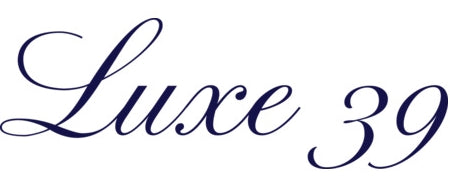In the week that my online store hit 10,000 visitors I thought I'd put together a quick blog post with 5 lessons I've learnt in year 1 of starting my Luxury Velvet Cushion company.
These are simply the first 5 things which popped into my head, but they may prove useful to anyone else thinking of taking the leap into the unknown and starting up their own business.....

1) There's probably an 'off the shelf' website which will work perfectly well for you
Getting a bespoke website designed from scratch is prohibitively expensive, and the costs won't ever stop as you'll constantly need upgrades and additions to keep up to speed with the ever changing internet and ecommerce world.
There are many 'off the shelf' solutions provided by numerous e-commerce companies at a fraction of the cost of a website designer. Many offer 24 hour customer support; apps you can add as your company progresses and your ecommerce understanding develops; numerous templates or 'themes' you can choose from to make your website look and function exactly as you want.
When I first looked into website designers I registered with most of the obvious contenders but I was premature and, after tinkering with the various offerings (with varying levels of success), my free 14 day trials expired, largely unused. It was a few months before I was ready to select an e-commerce company and this delay proved very telling. Many of the companies didn't contact me at all in this time, but Shopify (the company my site is with) kept in contact with me and sent some really useful information on subjects including SEO, PPC, establishing a social presence etc.
I chose the e-commerce company I found easiest to work with on every level: how intuitive the site build process was (based on playing around with colour schemes, uploading products, inputting images, uploading content etc); how easy they were to contact when I hit a blank; how unique my store would end up looking reflecting my brand ideas.
My advise would be to register with a number of e-commerce providers, play around with the functionality of their offering based on your level of competency, explore the various templates or 'themes' they offer to see which best suits your product/service offering and the variants you will need, and to take into account how good the customer service is. Unless you are selling a very complex product or service I'd be amazed if there wasn't a site already designed out there to suit you (and your budget).
2) You can teach yourself most things
There is definitely a place for experts, but even specialist skills can be learnt pretty quickly when you're a one person band with limited funds.
Photography. Initially I hired a photographer to take pictures of all my cushions for both product shots and interior shots. She was brilliant and her photos form the basis of my site, but I can't afford to hire a photographer every time I need to add more products or need more 'lifestyle shots' for the hungry worlds of instagram and pinterest.
With a few bits of kit, including a tripod and lights, many shots are now achievable, even just with an iphone. The editing suite built into most phones allows you to enhance colours, straighten pictures, remove shadows, lighten photographs etc and enables you to achieve pretty professional shots with a bit of practice. Rather than investing in another photographic session I'm more tempted to invest in a decent wide lens camera as it is useful to be able to snap shots frequently to keep the look of your site and social presence fresh.
I.T. can be daunting but a Google search will help you sort out most issues (if you accept there'll be a bit of swearing along the way). Have faith in your ability to work through things step by step. Remember when you had an IT department to call up and 9/10 times they simply had to 'turn it off and on again' (leaving you looking like an I.T. moron!). I have always thought of myself as being pretty unlucky and unskilled at IT, but with a bit of online guidance I've even been able to cut and paste into the code of my website, although the nerves do start to rise when I press save!
SEO & PPC aren't rocket science. Read a few articles/blogs/forums for up to date opinions on how to rate highly with Google and keep on reading them. Understand that there aren't any silver bullets to success and actually no-one really knows how Google ranks things as it is a company trying to make money so it keeps moving the goal posts. You are as likely to be able to keep up as the 'experts'. Know that it is always a work in progress and will always need adapting and tweaking as you discover new 'keywords' or 'keyphrases' which you need to incorporate to be found on google.
3) Instagram is a time bandit.
Having pretty much avoided the online popularity context that is social media for the last decade I realised I needed to engage for business purposes. I requested the help of my favourite millenial and got a crash course in Instagram (which is neither logical nor user friendly) and started my social journey.....
As expected, it sucks you in and is a rocky ride but I think it necessary.... for the moment.
On instagram there is no correlation between how many followers you have and how many likes you get. You can increase your followers by 1000 but get fewer likes than you did when you had 100 followers. There is no correlation between the amount of time you put into a post and the number of likes it will get. There is no correlation between followers/likes and ultimately sales.
But, just as I think about stepping away from the platform I find Instagram has directly generated sales, so for the time being I think it is a necessary evil!
In the long term I'm unsure whether it is a good platform for anyone starting a business. The 'grid' is getting less and less of users time, with stories and IGTV taking most peoples' attention, and it is very difficult to generate new followers from either stories or IGTV. Established instagrammers with 10,000 + followers can push traffic to their website from stories with the swipe up function, but the chance of getting to 10,000 followers is hugely hampered by the decreasing engagement with the grid. For newbies like myself you are stuck in a bit of a relentless circle and I think that Instagram maybe dying as the platform for startup businesses, as it doesn't enable organic growth.
Additionally, Instagram is increasingly full of adverts so every 4th post is now a paid ad, putting people off and therefore potential 'organic' customers away.
I'm switching much more time and attention to Pinterest which I think is a better use of resources and which directly links to Google searches (unlike Instagram which sits separately).
Instagram v's Pinterest for small startup business is a blog post all in itself, so watch this space.
4) Not all influencers are equal!!
While this links to the last point I feel it needs a point of it's own to save you time, money and disappointment.
Influencers are undoubtedly useful for increasing follower numbers on Instagram and getting your products seen by more people, but I would advise you not to simply throw your products at just any influencer based purely on numbers, but instead observe how they support small business over a period of time.
Many influencers got lucky. They were early adopters of Instagram at a time when it was easier to gain engagement and followers. In the early days many were happy to give real support to small businesses as this was a great way to grow their own follower numbers. But times have changed and many have got very used to big companies chucking big products their way along with big money. Some will happily accept your products and think that showing them once on their stories will bring you all the riches - but it really won't. You may get a temporary 24 hour increase in web traffic at best..... and then the story will disappear for good along with any reference or link to your little company.
Instead I would recommend engaging with influencers who are a little more niche, whose follower numbers are smaller but more engaged. Those who are genuinely interested in your company and buy into your unique product offering. This may take some trial and error but doing your research will avoid disappointment and extreme irritation!
5) Allow yourself time to recognise how far you've come
As an interiors account on social media I see many homes with slogan posters saying things such as 'Be Kind' and 'Work Hard and Be Nice To People'.
While I have no intention of filling my home with these self help slogans I do think it's important when you start a business to stay ambitious but also allow yourself time to reflect on what you've achieved.
In the last year I have:
Arrived at the business idea for my cushion company, named and registered the company, designed the brand identity and all collateral
Sourced all materials (all recyclable/degradable and from the UK), made all cushion samples, photographed all cushions
Designed and populated a website with products, photos and SEO laden content which went live in August and to date has had 8,851 visitors (and counting)
Instigated a marketing plan which includes a PPC strategy, building an instagram presence from scratch to over 1,500 followers, establishing a mailing list of over 200, developing a B2B strategy resulting in retail orders
Generated sales in the UK as well as overseas and getting 5* ratings from all customers who have added reviews.
It's easy to get frustrated that things are progessing slowly but all of those small steps add up. And one of my favourite phrases has always been 'slowly slowly catchy monkey'!!
My ultimate lesson to anyone else thinking of setting up a business is that if I can do it anyone can. You don't know if you don't try.
Good luck xx




